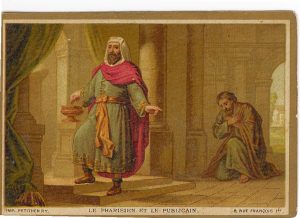Today is the 10th Sunday after Pentecost, the last Sunday in the month of July. On July 17 to 21, 2024, there was the biggest gathering of Catholics, more than 50 thousand people, who participated in the 10th National Eucharistic Congress in Indianapolis, Indiana. There were many activities, like catechesis on the eucharist, adoration and masses during the whole congress. It drew so many Catholics with much renewed love and faith for the presence of Christ in the Eucharist, the summit of our Christian life. The conclusion of the Eucharistic Revival in the United States made an impressive effect on the hearts of the young families, manifesting notable change in the way they accept and perceive God in their lives. There is such dynamic and renewed spiritual fervor. Our beloved bishops don’t want us to have a lethargic faith and be easily lost in our encounter with God.
St. Paul, who labored much in his ministry, did not want the Corinthians to be led astray. This is the clear message of the epistle we heard today. St. Paul wants Christians to know that in their previous experience as pagans they may have poorly understood the realities concerning spiritual gifts. St. Paul reminds Christians that so-called inspired utterances are not necessarily inspired by the Holy Spirit. There may be people claiming to be speaking from the Holy Spirit, but that does not mean that they really are. St. Paul uses an illustration on this issue; thus a person who is speaking from the Holy Spirit is going to only speak the truth, and no one who is speaking from the Holy Spirit will speak false things. These gifts are not for self-indulgence but for the community of Christ. These gifts were used to serve others and not to serve oneself. These gifts were not to be signs of spiritual achievement and prowess, but an outflow of God’s grace. What we see in the religious world today is that many try to claim to have spiritual gifts to draw attention to themselves.
The most important thing to comprehend is that St. Paul does not merely say that God gives the gift, but rather empowers the gift to manifest that He is the one doing the work. God is the one who makes the gift work. The primary actor is God who activates or starts the gift to work because no person has the ability to exercise the gift by their own power.
Today’s gospel from the evangelist Luke narrates to us a parable about two men who went to the temple to pray; a pharisee and a tax collector called a publican. Let us reflect on how they conduct themselves before the eyes of God.
First, the pharisee prayed with so much praise for himself…”O God, I give Thee thanks that I am not as the rest of men, extortioners, unjust, adulterers…fasting twice and pay taxes of all that I possess.” His style of prayer centers on himself, rather than God being the focus of praise and exaltation/adoration. That was not a prayer at all. Sometimes we have the same attitude like Catholics who are regular and visible in the church every Sunday, and we can sometimes feel superior to those who are not regular churchgoers or to those who do not belong to our faith, slowly trying to fix their immoral lives. We always think that we are God’s favored children because we think we are observant of the rules compared to the sinful and despicable outsiders.
Second, the tax collector feeling unworthy and standing from afar uttered this prayer, “O God be merciful to me a sinner.” He accepted being a sinner aside from being regarded as public sinners. He knows and acknowledges his sinfulness with sincerity of heart. He is resigned completely to the mercy of God. He did not compare himself to anyone else or even judge others, but himself. This prayer is totally accepted by God, who is merciful to sinners, because the reason He came on earth was for sinners and not for the righteous people.
There are many people I have encountered and observed who, with their generosity of time, talent and treasure, are here, praying sincerely and lifting everything up to God. They are quiet workers, and their prayer is an expression of their total dependence on and submission to God. I believe that there is nothing that we can offer to Him which God has already offered everything from the beginning. What has been required is our effort to return to Him, as sinners, with our love and gratitude by being kind, generous, and forgiving to people. We follow the way of Jesus who wants us to act charitably to compensate our great debt for God’s goodness, mercy and love. Like the publican “he went down to his house justified.”
Third, Jesus concludes saying, “Everyone that exalts himself shall be humbled, and he that humbles himself shall be exalted.” We must genuinely humble ourselves before God and others. We need God to forgive us. Nobody can be proud of himself in front of God.
In conclusion, our understanding about this gospel pericope implies that Jesus wants to teach the importance of praying with the right attitude and humility. This parable is aimed at those who think they are very righteous and look down on others. This shouldn’t be the case. We must always please God.
I believe that God empowered us with spiritual gifts, whatever they are that we are gifted, to dispense them according to His divine will. May it be gifts of healing, prophesy, discerning of spirits or gifts of understanding and diverse kinds of tongues, and may we always put them in the service of the community and free oneself from temptation of being selfish and proud. We are all but just instruments of God.
God bless you.
Fr. Arlon. osa

